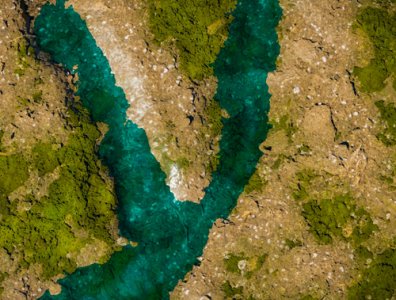IMHO Climate change and litigation: some reflections
OPINION: I took part in the May 2023 Symposium on Climate Litigation in Comparative Contexts hosted by Auckland University Law School. My session Climate Attribution Science and the Law included presentations from David Frame (Canterbury University), Rupert Stuart-Smith (Oxford University), Jessica Wentz (Columbia University), and myself. It generated some good discussion with audience members in the law sector and there is a clear need for increased dialogue between climate science and the law.
The “attribution science” we talked about involves understanding the drivers of climate changes, in particular the contributors to particular extreme events. Using statistical comparisons between past extremes and the one in question, and using the output of climate models, it is possible to estimate how much climate change has contributed to the intensity of a heatwave, a flood or a storm. Additionally, it’s possible to estimate how the frequency of occurrence of the event has changed in a warmer climate. If we know the cost of the event in terms of infrastructure damage or lost production, we can put a dollar value on the climate change contribution to that event. Hence, we now have a factual basis for legal causation claims, and a scientific tool for judicial adjudication.
Litigation around attribution of climate extremes is at an early stage. It is clear that the evolving scientific and political context will increase the likelihood of successful legal claims over time. Who to “blame” for the effects of climate change can be problematic in the sense that the greenhouse gas emissions driving the change are mixed together globally, so no one agent can be said to be responsible for the change. However, there are good records on the national scale of such emissions, for the last 30 or so years at least as required under the UN Framework Convention on Climate Change. Around half of all human emissions of greenhouse gases have occurred in the last 30 or so years, hence it is possible to say that some countries are more responsible than others for the climate changes we observe. Even so, it is problematic to claim a particular country or a particular industry or business is responsibility for a percentage of the damage from an extreme in a particular region.
Recently, a Peruvian mountain guide Saúl Luciano Lliuya brought a case against Germany’s largest electricity generator RWE, saying their carbon dioxide emissions were partly responsible for glacier melt and the heightened risk of an outburst flood from Lake Palcacocha at the foot of the glacier. The case was dismissed by the District Court of Essen, stating that the number of contributors to climate change render attributing individual damages to specific actors impossible. The case is on appeal, and evidence presented makes it clear that human-induced warming is virtually certain to have played a role in the glacier melt. But, making the link to an individual emitter of greenhouse gases remains problematic.
Where such litigation is likely to be more successful is in the area of “loss and damage” and around questions of international equity. It is clear that the countries and communities most exposed to damage from climate change are those who have contributed the least to the problem. Typically, the industrialised countries in the middle latitudes do the emitting, and the developing countries in the tropics feel the effects most strongly. On the basis of national cumulative emissions of greenhouse gases, there is a legal basis for seeking damages, for poorer communities to obtain financial support from richer countries. One of the goals of the human response to climate change has to be to reduce inequality across the world. The Intergovernmental Panel on Climate Change (IPCC) notes that “Fairness is one of the solutions.” Populations in the most exposed countries are already much more likely to die in floods, storms, and droughts than are those in the most resilient and well-resourced countries. The developed countries really have a moral obligation to support those in need. If they don’t, the rise in inequality and international tension could easily spill over into conflict and the breakdown of order.
Earlier this year, after pressure from Pacific Island nations led by Vanuatu, a United Nations resolution was released calling for the International Court of Justice (ICJ) to issue an opinion clarifying nations’ obligations to tackle the climate crisis and the consequences they should face for inaction. That resolution is now being considered in court and could set the stage for significant “climate justice” litigation.
It is worth noting that many of the most significant effects of climate change are to ecosystems that have no voice. Species extinctions have accelerated dramatically in the last century and it is clear that climate change is driving many species to the brink of extinction. Whether or not successful cases can be brought in this area remains to be seen, but one thing is clear. Unless humanity gets on top of emissions quickly, we ourselves will be heading for that “critically endangered” list.
About the author:
Professor James Renwick, School of Geography, Environment and Earth Sciences, Victoria University of Wellington PhD, CRSNZ.
Professor James Renwick is a leading climate scientist with a strong national and international reputation, and four decades of experience in weather and climate research. He is a Professor of Physical Geography at Victoria University of Wellington. His appointment as a Lead Author and Coordinating Lead Author on three Assessment Reports of the Intergovernmental Panel on Climate Change (IPCC) demonstrates his expertise. He has also been involved in the governance of the World Climate Research Programme for the past eight years.
James is a Companion of the Royal Society Te Apārangi, a member of the Meteorological Society of New Zealand, the American Meteorological Society, and the American Geophysical Union. He was awarded the Prime Minister’s Science Communication Prize (2018) and was a member of the team awarded the Prime Minister’s Science Prize (2019). In 2019 James was appointed as a Commissioner on the New Zealand Climate Change Commission, to help advise on government policy around climate action. He is also a Technical Advisor for Chapter Zero NZ.
For more detailed information, please also refer to the update from the Climate Governance Initiative “Climate Change Litigation – What Board Directors Need to Know” (published June 2022).
The views expressed in this article do not reflect the position of the Chapter Zero NZ unless explicitly stated.
Contribute your perspectives and expertise on an area of governance to Chapter Zero NZ, IoD membership and the governance community. Contact us mail@iod.org.nz



